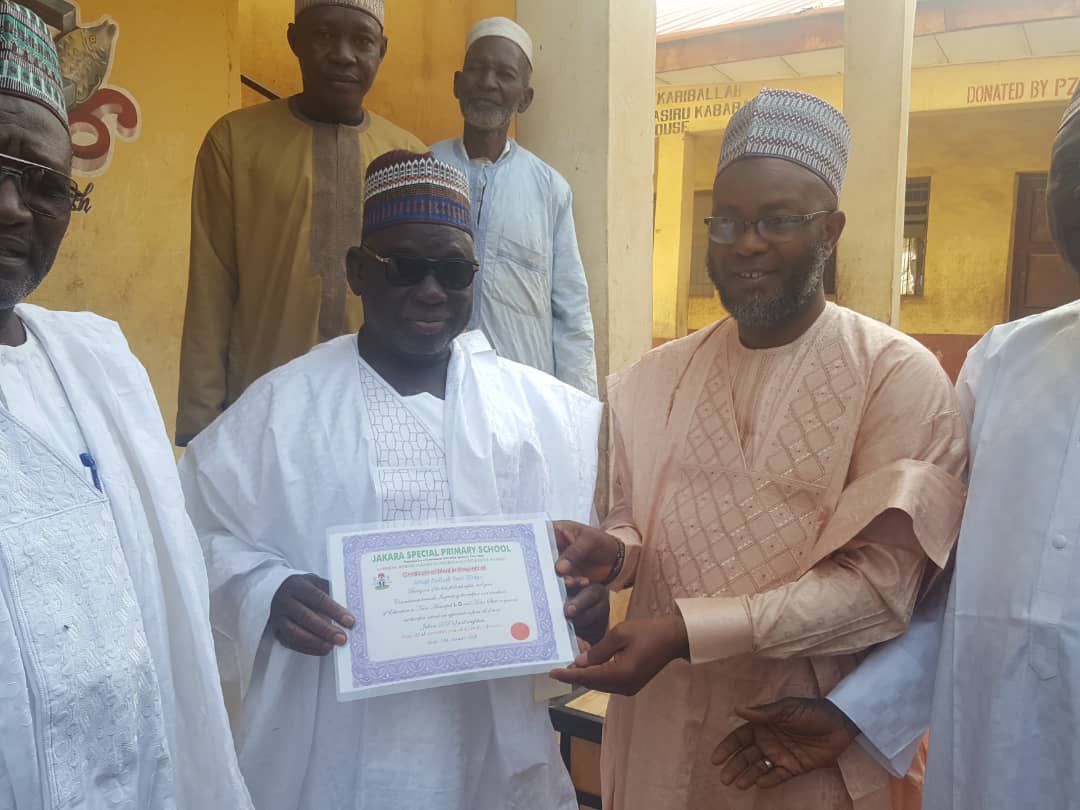In this concluding part of his exclusive interview with Muslim News, Nigeria’s most authoritative Islamic Newspaper, Mr Modupe Kadri, the outgoing, multiple award-winning Chief Financial Officer (CFO), MTN Ghana, spoke extensively on boardroom politics, missing home, challenges facing the youths and how being a conscious Muslim shaped his path to success.
How common is this attainment of yours for Muslims in MTN, Nigeria and beyond? How many Muslims have risen to C-suite levels in MTN in the past?
Well, I think the starting point is that MTN is an equal opportunities employer. We don’t discriminate. Everybody can rise up as long as they are able to distinguish themselves. For instance, if you look at MTN Nigeria, my colleague, Muhammad Rufai, the Chief Technical Officer is a Muslim, and we were both in Ghana.
That’s an example; as long as you are doing the right things and also improving your career path, there is no reason you cannot get there. So, I don’t think it is about being Muslim or not. I think it is about preparations for greater future responsibilities. It goes back to my earlier comment on the need to have clear goals and objectives in the pursuit of excellence in one’s career.
It’s clear that Muslims are vastly missing in the managerial cadre of blue-chip companies in Nigeria. Why, in your opinion, is that so? What should be done about that?
I think there has to be a conscious activity to guide them as to what they should do and how they should build their careers. To a large extent -because I interact with a lot of students in the University- you find out that there is this disconnect in how they view life. Until there is a clear mentoring program or some activities to let them understand that you have to make conscious decisions to get to wherever it is you want to be.
You find out a number of them, based on my interactions, are laid-back. Maybe they are confused, or they don’t believe in themselves. Definitely, they lack self-confidence. It may also be because they have the belief that you can only be successful because of your background. But my background is a testimony to the exact opposite of this assumption.
However, many of them have no idea of what my background was. They just assume that for me to have got to where I am today, I must have come from a rich background. It’s totally wrong to have this mind-set. People need to be focused on improving themselves; rather than blame the society they should take responsibility for their careers.
How will your being a conscious Muslim help you in this role? How has it helped you in the past?
Well, I would say it has everything to do with it. If you want to be a leader, you must have your value system. And values are usually based on something. For most people, it’s based on their belief system. Whether they are Christians or Muslims, there must be an underlying value system to drive them.
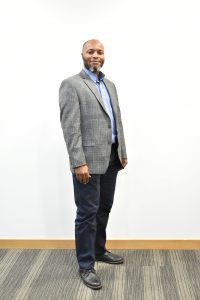
Hence, when you look at companies that thrive on a high level of integrity, it means they talk about virtues like honesty, transparency and things like that. These are things that are well embedded in our faith as Muslims. So, if you are practising – back to my earlier point on treating people fairly – you will realize that as a fellow human being, you must give them their due rights and treat them with respect. Not just because you’re in the position of authority, but because that’s the right thing to do.
When you engrave all these into your leadership point of view, it becomes easy to practise them seamlessly. In my own case, being a Muslim has everything to do with my achievements because I know that I have to be just, honest and generally, morally upright. You read the seerah (history) of early Muslims being just to both Muslims and non-Muslims alike. Then, why should I be different? In that regard, I must simply emulate those who have been successful in terms of their interpersonal relations.
Do you belong to some professional Muslim bodies? If yes, can you identify them? Do you mentor Muslims in these professional bodies?
Well, there are a number of Muslim bodies that I tend to associate myself with. But because I have not been active here in the country, I am not really abreast in terms of their activities. But, at times, when I am invited as a resource person, I try to make myself available.
In terms of mentoring, yes, at the workplace, I tend to do that. Being a past member of the Muslim Students’ Society too, at times, I’m called upon to deliver one or two lectures. I think the scale of what is required ahead of us is much larger than whatever is going on now. It has to be a concerted activity to encourage our younger ones post-university. We should empower them with these principles, so that they can imbibe them in their way of doing things.
What are some of the challenges facing the youths you mentor? How do you think you can address them?
Only three to five in one hundred people that you meet on a mentoring program will likely see it to a logical conclusion. That’s why it’s no surprise that those three to five per cent actually control the remaining ninety five to ninety seven per cent.
What you tend to find out is that most people have a short span of attention. I can paint a big picture that this is what I see of you. However, I should also be there to tell you that the road is not going to be smooth. Notwithstanding, if you stick to your goal, you will get there.
Now, imagine talking to a twenty five or twenty six year old, who don’t really know me from anywhere or probably has just started interacting with me for a few months, it won’t be easy to carry it on to end.
An advice I can give to the youth is that everything that you know, you need to keep changing it, because it is not going to carry you to the next level. On the average, just ask anybody; are you happy with where you are? Is this what you planned to be? Most times, you have a resounding “no”. And then, I will tell them; “I have bad news for you; you are exactly where you planned to be”. This means that wherever we are in life is a direct outcome of our actions or inactions.
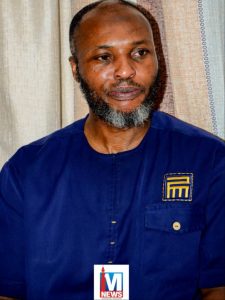
That is why you hear people saying; “if you fail to plan, you plan to fail”. For somebody who aspires to become a manager in a multi-national company at 28, the question is: what have you actually done towards making that goal a reality? What conscious decisions or choices did you make or have failed to make?
Most of us prefer the path of least resistance; that is what is comfortable. I can tell you stories of why you have to be uncomfortable before you can be comfortable, and that’s why every successful person has gone through that circle. If you have not got that construct, it’s not likely that you would see success as you want it.
In today’s world of modern technology and business, you talk about disruptive technology. In other words, even if you are successful, you must plan to disrupt your success. If you don’t disrupt your success, somebody is going to disrupt it. It’s better you plan so that you can be ahead. The same thing also applies to us. You have people who have studied medicine, then, later decided that they want to be accountants instead. Don’t blame them.
The person has to disrupt because there’s no point in doing something that one’s not going to be comfortable with. You are not going to get ahead in a field you are not interested in. That’s an example of being disruptive. The same thing also applies when you are doing a job that is not commensurate to your skills or you feel you are underemployed. The question is, have you decided to disrupt yourself and say; “no, this is not working for me, I quit”?
I belong to a different school of thought (radical). My own point of view is simple. If you are given a responsibility, strive to deliver the best possible. Then, and only then, will you be second to none. You see, the challenge most people face is that they just have skills, and they want to start comparing themselves to people who are a little bit above and exceptional, and then, try to capitalise on nuances of politics and religion as reasons they have not been chosen.
Agreed, it is possible that these things exist, and I have not said they don’t exist. But my mantra is you may not like me, but you can’t do without me. The point is that you have to make yourself relevant. And if you look at it, somebody hates a sister who wears Hijab. But if she has an accident, and the same sister helps out because she’s a doctor, the hatred is not going to be a factor any longer. Therefore, professionalism is key.
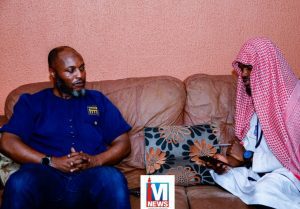
So, that tells you that most of these things that we are unfortunately, now taking as our weak point or as a reason to say; “well, they don’t like us, we can’t make it because we are minority or stereotyped” are actually not based on fact. That’s why I said I belong to a different school of thought.
I believe strongly that you should take me for who I am. And you will accept me for who I am based on my contribution to whatever organization or endeavour I set out to join. And that’s why I think that narrative has to change.
The people who feel they are marginalised should go there and prove them wrong. Prove them wrong in the sense that when you are put at the centre stage, show them that you are different. Show that you have something special. In other words, you have to work extra hard. Yes, once you get there, you make so much impact that people will say; “we didn’t know that you could also do it”. I think that’s what is missing.
We’ve come to accept that unless you are in a particular construct, either you come from a certain type of background or you have something in your favour, you cannot get there. It’s wrong! And I disagree vehemently.
During your 5-year stay in Ghana, did you miss home?
The Ghana posting, for me, was a blessing because of proximity. There are people who live in Lagos and work in Kano, Port-Harcourt, Abuja, etc. and vice versa. So, if it’s not a problem for them, and they’ve not missed home, why do you think it should be a problem for me? Some of them do two weeks on, two weeks off.
As for me, I am home almost every other week. So, I didn’t move my family because my kids are at various stages of their education. So, even if I was working in Lagos, either they are in boarding school or University. The implication of this was that there was no need for a fundamental shift.

For me, it worked out fine as Ghana is only 45 minutes by air. Unless I tell somebody, he might not actually know I am not in Nigeria. Every other weekend, I am around.
Do you encounter stress or phobia that comes with travelling especially by air?
Well, I enjoy travelling as a hobby. Still, I consciously try to live close to the airport to cut down the stress. So, even here, where I live, I am only twenty minutes away from the airport.
Basically, the stress people face in air travelling is actually the airport experience – commuting to and from the airport. That’s where most of the challenges usually are. But, in my own case, I don’t find that much of a challenge. And if you also apply the Islamic principle, when you are afraid of something, remember that you are surely going to die at some point. So, when Allah says your time is up, it doesn’t matter whether you are in the air or on sea or anywhere else.
How do you relax?
Do I relax? I really don’t know. I am not monotonous. So, I can’t do something for too long without doing something different; watching news, football or something else entirely. Some other times, I go on social media, just to catch up. It could also be travelling because I like to travel to places I have not been to.

Some words, I take out. I don’t like the word stress. What is stress? Stress is a state of mind. So, I will control that. What goes into what you do that causes stress? This is why I say that it’s a mind-set. People say they are stressed. Why not simply say I am tired! Tired means you have been working hard and you need to rest. If this is the case, then, sleep and get some rest.
Do you think destroying properties in reaction to xenophobic attacks is justifiable? What are the best ways such grievances could be addressed?
Well, I will have to agree with those who say that people who engaged in the attacks are just criminals because that’s exactly what they are. I don’t think most of the attacks have anything to do with a particular cause, even though they say it does.
I feel that if there is any dispute, like you rightly pointed out, there are better ways of resolving them. Today, we live in a connected world. Imagine a South African who thinks that killing and burning Nigerian shops is the solution, forgetting that his uncle, nephew or other South Africans also have businesses in Nigeria. What happens when Nigerians also retaliate?
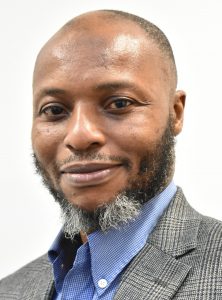
Therefore, attack is not the solution. Dialogue, yes! But more importantly, there is an underlying social problem that needs to be resolved. Why are there flashpoints? Unemployment, restless youths, people feeling that the few jobs are not enough to go round; these amongst others are the reasons.
But destroying those same jobs cannot then, be the solution. If you burn a shop that possibly employs hundreds of foreign nationals in respective domains, when the crisis is over, what’s going to happen? Obviously, they would be laid off only to end up joining the labour market.
If you look at the attacks in Nigeria for instance, on ShopRite and all those places, who owns those shops? They are actually owned by Nigerians. Most of those things are franchises. If you have a franchise, you pay for a license to use the name, but the business is owned by you. So, destroying those things because they bear a South African name is actually destroying jobs for Nigerians.
Tell me, if the solution is in employment, how can creating more unemployment solve the matter? I think that’s the narrative. When you talk about all these attacks, they occur because of the lack of understanding of the social dynamics of how businesses work. At the end of the day, the people who are going to lose are the same people who are fighting. Either they get higher prices for goods purchased or just throw out their nephew or cousin who used to work in those firms unknowingly.
For instance, all the farmers who supply ShopRite with fresh foods, are suddenly back in the village, with no means of livelihood because the supply chain is caught off. So, I think the only way is to create opportunities for dialogue, and the governments have crucial roles to play to address these flashpoints because they involve the loss of human lives. You know, properties can still be regained, but human lives cannot be replaced.
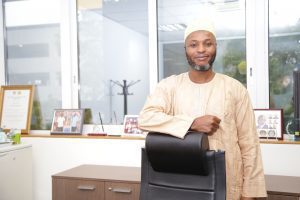
Part 1
Modupe Kadri speaks exclusively with Muslim News on his 5 successful years as CFO, MTN Ghana (part 1)
▪︎ Says putting his team first is his guiding principle
Read more >>


